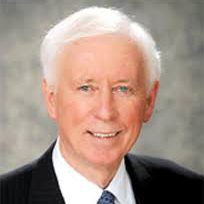Working for Health Equity: The Role of Health Professionals
Yesterday I was at BMA House in London to participate in the presentation of a report from the University College of London (UCL) Institute of Health Equity (IHE) on the role of health professionals in reducing health inequalities through action on the social determinants of health.

Baroness Hollins, President of the BMA, opened the conference. Professor Sir Michael Marmot, Director of the UCL Institute of Health Equity, introduced the report. I provided an international perspective from the World Medical Association. Dr. Jonathan Sexton of the Academy of Medical Royal Colleges reported on Royal College actions. Dr. Adrian Tookman of the Royal Free London National Health Service Trust discussed hospital consultants and health inequalities. Dr. Anna Reid, President of the Canadian Medical Association provided a perspective on physicians and health equity in Canada. Dr. Reid presented the findings of a survey of Canadian physicians on opportunities to address these issues. I will report on this in a separate blog.
The social determinants of health are the conditions in which people are born, grow, live, work and age; and the societal influences on these conditions. They are major influences on both quality of life, including good health, and length of disability-free life expectancy.
Since the World Health Organization report on social determinants of health was published in 2008, many in the health professions have asked what they can do to respond to the challenge. This report answers that question.
The report, developed under the direction of Professor Marmot, launches a new program of activities to tackle health inequalities through action by health professionals on the social determinants of health.
It states: “Those in the health sector bear witness to, and must deal with, the effects of the social determinants of health on people. This report will demonstrate that the health care system and those working within it have an important and often under-utilized role in reducing health inequalities through action on the social determinants of health.”
Twenty-one health professional organizations participated in the report and provided statements about actions health professionals can take in their practioner role. In addition they provided a series of commitments for future work. These organizations represented physicians, nurses, dentists, social workers, medical students, midwives, public health officials and allied health professionals. The latter include music therapists, dieticians, occupational therapists, physiotherapists, paramedics, radiographers and speech and language therapists.
The report is posted at http://www.instituteofhealthequity.org and contains recommendations and analysis in six core areas:
- Workforce education and training
- Working with individuals and communities
- National Health Service organizations
- Working in partnership
- Workforce as advocates
- The health system – challenges and opportunities
The primary responsibility for addressing the social determinants of health is that of government and society. But physicians by virtue of their role in the health care system – taking care of patients and possessing an intimate understanding of health care – must play a role in addressing this problem. This report from the Institute of Health Equity provides a blue print for action.

